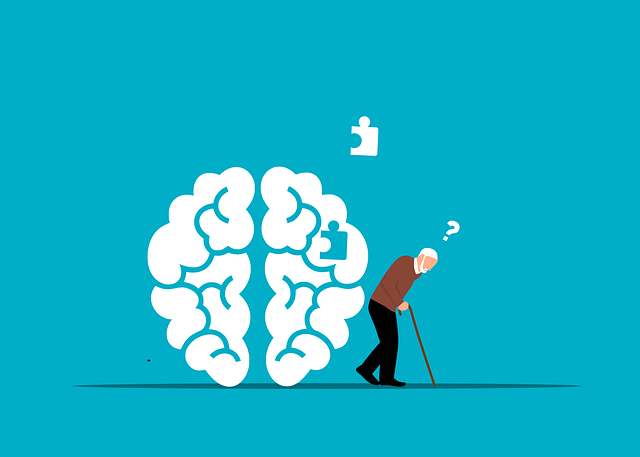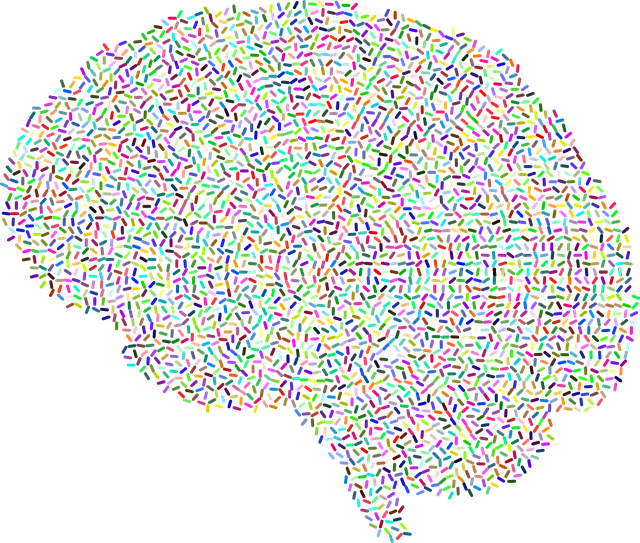In today's diverse healthcare landscape, cultural competency is crucial for personalized and effective patient care. Aurora Independent Medical Evaluations (AIME) Therapy highlights the significant impact of recognizing and respecting cultural identities on health practices and outcomes. Through comprehensive training and public awareness campaigns, healthcare professionals learn to navigate cultural differences, improving emotional regulation and outcomes, especially for marginalized communities. This approach fosters inclusive environments that reflect society's diversity, while addressing biases and stereotypes that can lead to miscommunication, delayed diagnoses, and staff burnout. AIME professionals undergo specialized training in cultural competency to tailor treatment plans for clients from various ethnic, religious, and socio-economic backgrounds, enhancing mental health accessibility. Interactive workshops, simulations, real-life case studies, and stigma reduction efforts are key tools for healthcare provider training, fostering empathy and critical thinking skills necessary for complex interactions with culturally diverse patients. By prioritizing cultural competency, healthcare systems like AIME Therapy positively impact patient satisfaction and clinical results, aligning with holistic stress management and burnout prevention strategies.
In today’s diverse healthcare landscape, cultural competency is no longer a nice-to-have but an essential requirement. This comprehensive guide explores the significance of cultural competency training for healthcare providers, addressing biases and stereotypes that can impact patient care. We delve into real-world applications, highlighting the role of Aurora Independent Medical Evaluations in fostering cultural sensitivity. Effective training strategies are presented to enhance provider competence, ultimately improving patient outcomes through a deeper understanding of cultural awareness.
- Understanding Cultural Competency in Healthcare: A Necessity in Modern Practice
- The Impact of Cultural Biases and Stereotypes on Patient Care
- Aurora Independent Medical Evaluations: A Case for Cultural Sensitivity
- Effective Training Strategies to Enhance Provider Cultural Competence
- Real-World Applications: Improving Patient Outcomes through Cultural Awareness
Understanding Cultural Competency in Healthcare: A Necessity in Modern Practice

In today’s diverse and interconnected world, cultural competency within healthcare has become an indispensable necessity. This concept goes beyond basic language skills; it involves understanding and appreciating the unique cultural backgrounds, beliefs, and values of every patient. For instance, Aurora Independent Medical Evaluations Therapy recognizes that a patient’s cultural identity significantly influences their health practices, perceptions, and expectations. By integrating cultural competency training, healthcare providers can deliver more personalized and effective care.
The development of public awareness campaigns and crisis intervention guidance is essential to promoting cultural sensitivity. Training equips professionals with the tools to navigate complex situations, ensuring emotional regulation in the face of cultural differences. This approach not only enhances patient satisfaction but also improves health outcomes, especially for marginalized communities. Effective cultural competency training empowers healthcare providers to create a more inclusive environment, reflecting the diverse nature of society.
The Impact of Cultural Biases and Stereotypes on Patient Care

Cultural biases and stereotypes can significantly impact patient care, often leading to miscommunication, misunderstandings, and even harmful outcomes. Healthcare providers, despite their best intentions, may unconsciously hold preconceived notions about different cultural groups, which can influence their interactions with patients. These biases can manifest in various ways, from assuming a patient’s symptoms are culturally-related rather than medically valid, to making assumptions about a patient’s treatment preferences based on their ethnic or racial background. For example, an Aurora Independent Medical Evaluation Therapy practitioner might encounter a patient from a minority group who is hesitant to share personal health details due to past experiences with systemic discrimination. Recognizing and addressing these cultural barriers is crucial for providing inclusive care.
The consequences of unchecked cultural biases can be severe, potentially leading to delayed diagnoses, inappropriate treatment plans, and a breakdown in the doctor-patient relationship. To mitigate these issues, healthcare providers should receive comprehensive training in cultural competency, including conflict resolution techniques and crisis intervention guidance. By fostering an environment that values diversity and promotes understanding, practices like Aurora Independent Medical Evaluations can ensure that every patient receives care that respects their cultural identity, reducing burnout among staff and improving overall health outcomes.
Aurora Independent Medical Evaluations: A Case for Cultural Sensitivity

Aurora Independent Medical Evaluations (AIME) plays a pivotal role in promoting cultural sensitivity within healthcare. In today’s diverse society, it’s crucial for medical professionals to understand and respect different cultural beliefs and practices when providing evaluations or therapy. This is particularly relevant for AIME, as they often interact with individuals from various ethnic backgrounds, religions, and socio-economic statuses. By integrating cultural competency training into their practices, AIME contributors can enhance the accuracy of their assessments and offer more tailored and effective treatment plans.
Embracing cultural sensitivity means recognizing that stress reduction methods and emotional well-being promotion techniques vary across cultures. For example, mental health education programs designed in Western countries might not resonate with individuals from non-Western backgrounds. AIME professionals should be equipped to adapt their approaches, considering the impact of culture on mental health expression and treatment preferences. This nuanced understanding fosters a more inclusive environment, ensuring that therapy remains accessible and beneficial for all clients.
Effective Training Strategies to Enhance Provider Cultural Competence

Effective training strategies are essential for enhancing healthcare provider cultural competence, ensuring quality patient care in an increasingly diverse society. Interactive workshops and simulations can immerse participants in various cultural scenarios, fostering empathy and critical thinking skills. These hands-on methods allow providers to navigate complex interactions with culturally diverse patients, promoting effective communication and building trust.
Incorporating real-life case studies from Aurora Independent Medical Evaluations Therapy sessions can provide rich learning opportunities. By discussing challenges faced by therapists in treating individuals from different cultural backgrounds, trainers can spark meaningful conversations about unconscious biases and microaggressions. Moreover, integrating public awareness campaigns development and mental illness stigma reduction efforts into training curricula equips providers with tools to address cultural barriers proactively.
Real-World Applications: Improving Patient Outcomes through Cultural Awareness

In healthcare, cultural competency training goes beyond theoretical knowledge; it empowers providers to navigate diverse patient backgrounds effectively. By fostering cultural awareness, healthcare professionals can create more inclusive and empathetic care environments. This is particularly evident in settings like Aurora Independent Medical Evaluations Therapy, where a deep understanding of patients’ cultural identities can significantly impact treatment outcomes. For instance, recognizing and respecting cultural beliefs surrounding health and healing can lead to better patient engagement and adherence to treatment plans.
When healthcare providers are equipped with the skills to communicate sensitively and adapt their approach based on cultural nuances, they contribute to improved patient satisfaction and clinical results. This is aligned with the goals of Stress Management Workshops Organization and Burnout Prevention Strategies for Healthcare Providers, as promoting positive thinking and well-being among medical professionals indirectly enhances their ability to deliver culturally competent care. Ultimately, these real-world applications translate into a more holistic and successful healthcare delivery system that respects and honors the diverse tapestry of its patients.
Cultural competency training is no longer a choice but an indispensable aspect of modern healthcare. By addressing biases and stereotypes, providers can create a more inclusive environment that improves patient outcomes, as demonstrated by the success of Aurora Independent Medical Evaluations in integrating cultural sensitivity into their practice. Implementing effective training strategies ensures healthcare professionals are equipped to deliver personalized care that respects diverse cultural backgrounds. This approach not only enhances patient satisfaction but also fosters better communication and trust between providers and patients from various communities. With ongoing education and a commitment to cultural awareness, the healthcare industry can revolutionize therapy and evaluation processes, making them accessible and beneficial for all.














